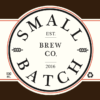Duvel Clone
Beers above 7%, such as tripels or strong dubbels, are referred to in some sources as Belgian strong ale, although this is not a name used by Belgian brewers.
Source: Wikipedia
Duvel on Untappd – Duvel is a natural beer with a subtle bitterness, a refined flavour and a distinctive hop character. The unique brewing process, which takes about 90 days, guarantees a pure character, delicate effervescence and a pleasant sweet taste of alcohol.
Apart from pure spring water, which is the main ingredient of beer, barley is the most important raw material. Barley must germinate for five days in the malt house, after which malt remains. The colour of the malt and as a consequence also of the beer is determined by the temperature. Duvel obtains its typical bitterness by adding various varieties of aromatic Slovenian and Czech hops. We use only exclusive hops that are renowned for their constant, outstanding quality.
Duvel ferments for the first time in tanks at 20 to 26°C. The brewer uses his own culture for this. The original yeast strain, which Victor Moortgat himself selected in the 1920’s, originates from Scotland. After maturing in storage tanks in which the beer is cooled down to -2°C, the drink is ready for bottling. Thanks to the addition of extra sugars and yeast, the beer ferments again in the bottle. This occurs in warm cellars (24°C) and takes two weeks. Then the beer is moved to cold cellars, where it continues to mature and stabilise for a further six weeks. This extra long maturation period is unique and contributes to the refined flavour and pure taste of Duvel.
Recipe Details
| Batch Size | Boil Time | IBU | SRM | Est. OG | Est. FG | ABV |
|---|---|---|---|---|---|---|
| 5 L | 60 min | 30.3 IBUs | 7.7 EBC | 1.080 | 1.004 | 10.0 % |
| Actuals | 1.065 | 1.003 | 8.2 % | |||
Style Details
| Name | Cat. | OG Range | FG Range | IBU | SRM | Carb | ABV |
|---|---|---|---|---|---|---|---|
| Belgian Golden Strong Ale | 18 D | 1.07 - 1.095 | 1.005 - 1.016 | 22 - 35 | 5.9 - 11.8 | 2.3 - 2.9 | 7.5 - 10.5 % |
Fermentables
| Name | Amount | % |
|---|---|---|
| Pilsner (Weyermann) | 1.138 kg | 75.49 |
| Light Dry Extract | 37.9 g | 2.51 |
| Cane (Beet) Sugar | 331.6 g | 22 |
Hops
| Name | Amount | Time | Use | Form | Alpha % |
|---|---|---|---|---|---|
| Saaz | 15.8 g | 90 min | Boil | Pellet | 4 |
| Saaz | 11.2 g | 0 min | Aroma | Pellet | 4 |
Miscs
| Name | Amount | Time | Use | Type |
|---|---|---|---|---|
| Irish Moss | 0.07 tsp | 10 min | Boil | Fining |
Yeast
| Name | Lab | Attenuation | Temperature |
|---|---|---|---|
| Belgian Strong Ale Yeast (WLP545) | White Labs | 82% | 18.33°C - 22.78°C |
Mash
| Step | Temperature | Time |
|---|---|---|
| Mash In | 64.44°C | 90 min |
Fermentation
| Step | Time | Temperature |
|---|---|---|
| Primary | 4 days | 19.44°C |
| Secondary | 10 days | 19.44°C |
| Tertiary | 14 days | 0°C |
| Aging | 30 days | 18.33°C |
Notes
| Important not to add the sugars to the mash or the yeast will prefer the simple sugars and you won't get that really dry Belgian characteristics. Allow the first fermentation to die down, then add the sugars in batches - just when you thought the yeast were asleep they'll have a complete uprising. Start the ferment at 17-18c, but let it rise naturally after the first 2 days up to 23-24c. Those higher alcohols will bring out the aroma. |
Download
| Download this recipe's BeerXML file |

